WEEKEND SPECIAL: The Complete A-to-Z Of James Gunn's SUPERMAN
Believing In Heroes, Or Being The Villain
Spoiler alert, kiddos.
A — Avengers. An odd place to start, but instructive as far as how this peculiar subgenre has evolved. When Marvel built its cinematic universe, they were sticking their toe in the water cautiously building up to an “Avengers” film. Now, it’s likely all films following “Superman” that exist within this new DC world will be a variant of “Avengers”, with characters flying everywhere and bumping into each other in the middle of their own respective adventures.
I couldn’t be more delighted about this, being a comic fan in my youth. When I read DC and Marvel comics, characters would always be bumping into each other, sharing space, having petty arguments. The Marvel movies have done a good job trying to capture that, but it always seems so dramatic when a new character is introduced, and yet it doesn’t lead to anything — anyone remember “Thor: Love And Thunder” ending with the discovery that Hercules was just hanging out somewhere?
It’s clear that James Gunn is going to create a separate ecosystem of characters (and therefore philosophies) in order for them to clash and sometimes unite in different movies and shows on a regular basis. This works wonderfully for “Superman”, because here he’s measured against the Justice Gang, a small grouping of edgier, more conventional heroes who believe in radical violent change as opposed to the simpler, kinder actions of the man of steel.
B — Brosnahan, Rachel. You should always be receptive to new versions of characters. All week, I feel like I’ve scanned comments from people who claim to enjoy Superman, and by that they mean some specific two-week run of the character that everyone likes, without any regard towards the character’s nearly century-long existence.
That being said, Rachel Brosnahan is exactly how you’d imagine Lois Lane to be. Headstrong but feminine, smart but cagey, not waiting to be rescued all the time. It’s interesting how the Clark/Lois relationship has lasted with the dynamic of Lois as assertive and mature, and Clark registering as something of a bumpkin. Kate Bosworth’s Lois was, sadly, simply far too young for the role, and Amy Adams never got to play much against Clark, her Superman too often forced to be a blunt instrument. Here, Brosnahan’s Lois quickly holds her Smallville lover’s feet to the fire, forcing him to take accountability for his baggage-free superheroics. More of her, please.
C — Contrast. Superman has to fight many battles in this movie, but interestingly, most of his conflicts seem to be against the modern world. He wants the quickest, simplest solutions to matters, but it involves bursting through red tape. Helping people comes with strings attached, ones he’s got no interest in pulling or holding. Many of the movie’s attempt to address Superman’s old-fashioned relevance are about successfully showing who he is, versus what the rest of the world has become. It’s not a successful marriage — even at the end, the media that dogged him at the beginning is only turning against Lex Luthor because they’re chasing trends.
D — David Corenswet. He’s a young Superman, which is something we haven’t seen. Brandon Routh was explicitly doing a Christopher Reeve impersonation, while Henry Cavill was a stoic, overwhelmingly physical presence. This is Superman as more of just, y’know, a dude — much like Dean Cain, who otherwise made a jerk of himself this week in joining the right wing chorus against the movie, because any chance you get to be against Superman, you just have to take it, right, culture vultures? I digress. I hope Corenswet is with us for a while, he seems authentically, adorably corny.
E — The Engineer. Oh, hello, Maria Gabriela de Faria. This is a character from The Authority, another superteam that may earn a showcase in the new DC universe on film. We don’t get to know a lot about her, but what savvy cornrows! Most of the time, she was a Swiss Army Knife effect, and I can’t say I grew sick of her spiraling and spinning and flying.
F — Frank Grillo’s Hair. Oh wow, to see this in IMAX. The best hair in the business, from the realest dude in movies. This is his second appearance in James Gunn’s DC Universe following the animated “Creature Commandos”, and his excellent hair will soon be seen in season two of “Peacemaker”. It’s never enough. Frank Grillo and that glorious hair should be in everything. Another case of DC taking advantage of Marvel’s errors, since he was previously wasted in the “Captain America” films as Crossbones. Special mention goes to Nathan Fillon committing to Guy Gardener’s hideous bowl cut.
G — Gunn, James. I do honestly believe that, at some point, Gunn had a choice to make: should “Superman” be tonally consistent, or should it be fun? No filmmaker should end up in that situation, but I’m glad he went with the latter. “Superman” has a bouncing-off-the-wall energy that clashes with the movie’s sincerity. One of the movie’s more romantic and heartfelt scenes happens after a very jokey cameo, all the while superheroes are fighting a big, glowy alien in the background.
But still, romantic and heartfelt — not a lot of that in this genre. Gunn has grown as a storyteller and a person since his rebellious script for the sacrilegious “Dawn Of The Dead” remake. He understands the key tenet of superheroes: everyone needs help, and superheroes don’t need to be fascist power fantasies — they can be juvenile savior fantasies, which are simplistic, but they embue the viewer with the desire to be kinder to their neighbors, more thoughtful towards the wounded. Sometimes they’re what you need to make the right decision.
H — Harem. I found this curious, the constant mention of the word “harem”. Superman is accused of having a “secret harem” by everyone after the video made by his deceased parents comes to light. In that video, Kal-El’s parents urge Superman to take over the world, and “rule without mercy”, but also to take “many wives”. It’s in defiance of Superman’s own monogamy, and it brings up an interesting idea as far as legacy. The word “harem” seems taken from another time, as does the long-dead Jor-El, suggesting that the reckless promiscuity of the El Kingdom is a dated concept. Curiously puritanical on the surface, though this is the first Superman movie where he and Lois are no doubt hot for each other. It’s another suggestion from Gunn that yesterday’s values and morals — monogamy — are today’s transgressions, and vice versa (pun intended).
I — “Invincible”. The reveal that Jor-El and Lara-El’s wishes were for Superman to dominate Earthlings, a shift from previous continuity, feels like a change that brings to mind too many other familiar stories and mythos’, particularly the Viltrumites of “Invincible”. It also sets the stage for a bunch of angry surviving Kryptonians. Why can’t there just be a bunch of cool Kryptonians? Right wingers shouldn’t have been so upset — the migrants ARE out to get us!
J — Jarhanpur. As a frequent visitor to Val Verde, I love my fake countries. The movie’s start finds Superman having interfered with a battle between the militaristic Borovia and the supposedly-innocent Jarhanpur — we know they’re the good guys because they have literally have sticks and rocks, and the other country has tanks and a military. This is comic book storytelling. I have no problem with it. I do not care for how the movie presents this as a moral question — was Superman wrong to save those people of Jarhanpur and threaten the leader of Borovia? It’s a compelling query until the movie sidesteps circumstances in the third act, due to the Deus Ex Machina of this being a world with other superheroes. It’s also one of those silly movie tropes that, within the moment, feels eerily appropriate to certain world events.
K — Krypto. Who’s a good boy? Krypto is. If you didn’t love this little guy, sorry, you are dead inside and maybe even outside too.
L — Lex Luthor. This was a unique, and somewhat unsatisfying, take on Luthor. His goals seem vague and entirely too based on destroying Superman, and Nicolas Hoult plays that one note too many times. He’s not masquerading as a genius like Gene Hackman, he’s not darkly sarcastic like Kevin Spacey, and he doesn’t have the chaotic energy of Jesse Eisenberg. He does have one unique moment late when he explains the nature of his jealousy towards Superman, a moment both odious and fascinating for his self-awareness towards an obvious mental condition. From a character perspective, it is interesting that this DC experiment is beginning with Luthor as some sort of wizard who can create “pocket universes”, engineer creatures and clone aliens. All of this towards killing Superman, because for all his god-like power, he still has that very human desire to destroy. I wished I could connect more directly to this, maybe Hoult has more opportunities next time.
M — Metamorpho. Anthony Carrigan plays the comic-accurate DC favorite that most other filmmakers would consider too “out there.” Visually, he’s got a sense of anime spectacle about him, at his full power able to float around whether he’s fully formed or simply a head. We don’t know much more about him, but he’s another classic James Gunn misfit from another world. No matter where Gunn gets them, his extraterrestrials remain excessively emotionally vulnerable. I do like this.
N — News. The last couple of Superman adventures made a mockery of journalism, more or less. This is another jokey approach, but with a sincere edge. Jimmy Olsen actually chases down sources! Lois thinks Clark has terrible journalistic ethics! And in the end, it’s not exactly Superman that brings down Lex, but in fact the Daily Planet reporting. I like this alternate reality of superheroes and responsible journalism.
O — Otis. Gunn actually got Otis in the movie. And his name is Otis Berg, a joke lifted from “Smallville” but funny all the same. It’s worth noting how much reverence Gunn shows for the original Richard Donner “Superman” movies, and by contrast how much veiled contempt he has for the Bryan Singer and Zack Snyder adventures.
P — Punk Rock. In keeping with what I said earlier about monogamy and promiscuity, again, Gunn is suggesting that yesterday’s trends are today’s transgressions, as Clark openly debates whether or not he is “punk rock”. It IS punk rock to be nice. Let’s be more punk rock.
Q — Quickly. The movie’s pace is excessively, aggressively speedy, to the point where it feels like a longer cut was condensed into this finished version. I only learned from the end credits that Christopher McDonald was in this movie. How do you miss Christopher McDonald? At the same time, the movie doesn’t fully commit to its core storyline until after a few seemingly unrelated sequences where Superman chats with his bumpkin parents, bickers with Lois, and trades barbs with the otherwise-inconsequential Justice Gang. The massive climax happens against the threat of a pocket universe splitting the world in two, and I couldn't help but think that, at the established pace, that situation would have destroyed the Earth in the amount of screentime that occurs. That being said, I am not an expert on pocket universes.
R — Reeve, Christopher. Still the definitive Superman, still my Superman of course. I was raised on these movies, and I remember plenty of Sunday afternoons watching Christopher Reeve showcase his sense of goodness, his dignity. People my age grew up in an era that was tiring of the concept of role models, which made Reeve stand out to a greater extent. I do wish his Superman was “tested” more often. But remember in “Batman V. Superman” when Cavill said, “No one stays good in this world?” Could you imagine Reeve ever saying anything like that? No, and I can’t imagine Corenswet saying that either, because it’s crap.
S — Superman III. If you haven’t seen it, this may turn you off. But there is more than an echo of “Superman III” in this movie, the first explicitly comedic Superman movie. “Superman III” suffers from being fueled by a lack of focus and probably some druggy behavior behind the scenes, but it’s filled with ideas about Clark trying to navigate between the City Clark and the Country Clark, a billionaire engaging in experiments with a machine he doesn’t understand, and Superman having to defeat a shadow version of himself before he can save the world.
T — Mr. Terrific. Applause all around for Edi Gathegi, who previously got the rawest deal by being the first to die in “X-Men: First Class”, as a character with a mutant power that is literally, “Can’t die.” His Mr. Terrific steals several scenes as a constantly-irritated super-genius who cannot accept that everyone’s intellect is miles beneath his. It’s a cheap gag to have him say, “I don’t need help, I’m goddamned Mr. Terrific”, but Gathegi says it almost like a mantra. Every time he’s onscreen, it’s a delight. In addition to Gathegi, Fillon’s Green Lantern and Carrigan’s Metamorpho, Isabel Merced’s Hawkgirl somehow made that absurd getup look natural. And similar to Gathegi, good on Merced for surviving “Madame Web”.
U — Ultraman. Superman has his hands full with this baddie, though it’s amusing to find out it’s actually a clone of Kal-El. The suit and mask briefly reminded me of the first appearances of Doomsday, though there is an Ultraman in the comics. The clone revelation suggests shades of when Luthor created a young duplicate of Superman to replace him in the comics. But then of course Hoult’s Luthor claims he’s “dumber” (a lazy bit of screenwriting) and you realize this is also Bizarro, a character we haven’t seen in a movie since the deleted scenes for “Superman IV: The Quest For Peace”. Impressive work by Gunn, creating a reference turducken with this character.
V — Villainy. I’m fascinated by these comic book movies having to ask the question, what is “evil” in the modern day? This is still a comic book movies, so it’s not entirely academic about the issue. But Gunn deploys nuance in unexpected places. Luthor has his own control room filled with tech nerds (the braces on one of them suggests he’s recruiting young). But most of the people who work for Luthor seem irritated and exasperated by their boss. Near the end of the film, as Luthor lets his plan spin wildly out of control, a couple of his henchmen actively rebel against him.
Which they should, of course — the movie never gets around to addressing the ramifications of Luthor having his own inter-dimensional black site prison. You would like to see that happening in real life. Right now, I think it’s absolutely diseased that we have to deal with this and that educated people refuse to acknowledge the obvious implications. But even when we’re dealing with people acting in self-interest, Gunn depicts a world where people won’t accept the moral bankruptcy of billionaires with a taste for punishment and a lacking moral compass.
W — Williams, John. John Murphy and David Fleming are credited with the score to “Superman”. But obviously, a debt is owed to Mr. Williams, who composed one of the great themes in film history for the character. Zack Snyder tried to peel away from the theme, and Hans Zimmer’s tuneful take on the character deserves its own plaudits. But when you heard a sting from Williams’ score sneak into “Justice League”, you should have known that the theme would outlast the Snyderverse. Murphy and Fleming mostly add some electric guitars as they pull apart the theme, stretch it, contort it so it can accompany faster contemporary action. But it’s still that score that will always be the essence of Superman, those regal horns, those hopeful strings, the sound of the sun rising on another hopeful day.
X — X-Men. One of the ways “Superman” succeeds is by the naked contempt shown for the sort of set-ups comic book movies used to have. There’s no origin, no belabored intros. This is a movie that tells the audience, “This is Metamorpho. Deal with it.” Expect something similar with the eventual “X-Men” reboot that Marvel is planning for 2028 or so — beginning in media res, and expecting the non-fans to catch up and accept the goofier elements. You can be certain the people involved with making that movie are watching “Superman” very closely.
Y — Your Mileage. Look, this movie might not work for you. If you loathe these superhero films, this one won’t convert you. But an interesting thing happened as I was watching this movie — I was invested. I grew up on the character, I watched him die and come back in the mid-90’s, even saw him get married. There are about ten Superman movies, and I have seen all of them multiple times. So yes, I was the key demographic. And yet, I still felt suspense, I still felt elation. I still wanted to pump my fist and cheer the two-dimensional figure on the screen. But this is a movie that creates this hard sci-fi world and populates it with ridiculous concepts, and the ask is that you buy-in. At this point, I can understand why people don’t, particularly with yet another city-destroying climax where seemingly-invincible characters punch each other. But if you believe in Superman in 2025, then you should find a space for this.
Z — Zlatko Buric. I followed a lot of the buzz on “Superman”, but at no point was I aware the movie had ZLATKO. Zlatko Buric is the shady and frankly wild character actor who earned a spotlight in Nicolas Winding Refn’s “Pusher” trilogy. This bushy-haired behemoth eventually appeared as a corrupt oligarch in “2012” and stole the movie from John Cusack and the army of falling skyscrapers. By the time I caught him in the Oscar-nominated “Triangle Of Sadness”, I realized he would show up hairy, dissheveled and unwashed in literally anything, the same guy every time. He plays the President of Borovia and actually has a sizable role. I don’t expect him to return to the DC world after this film, but the movie also features Sean Gunn, who previously played two other separate characters in the in-continuity “Creature Commandos”. In other words, yes, Zlatko Buric should be a Green Lantern.





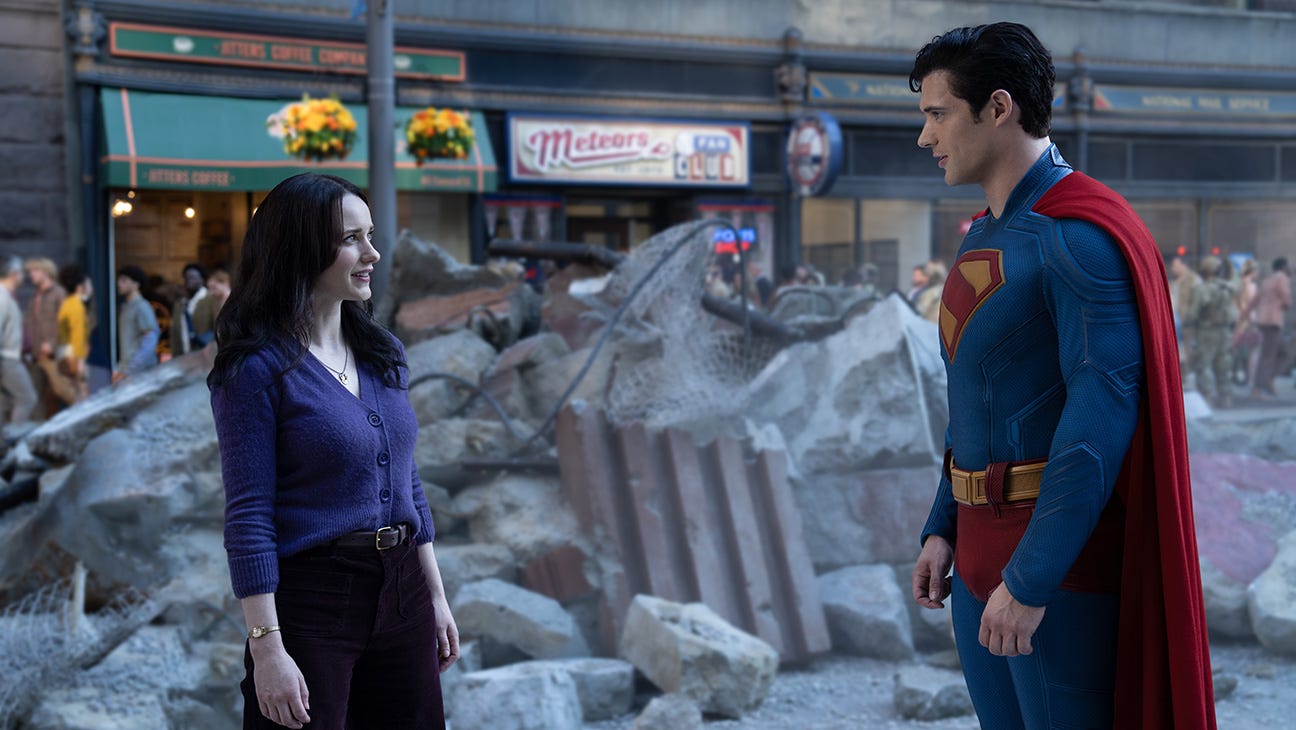
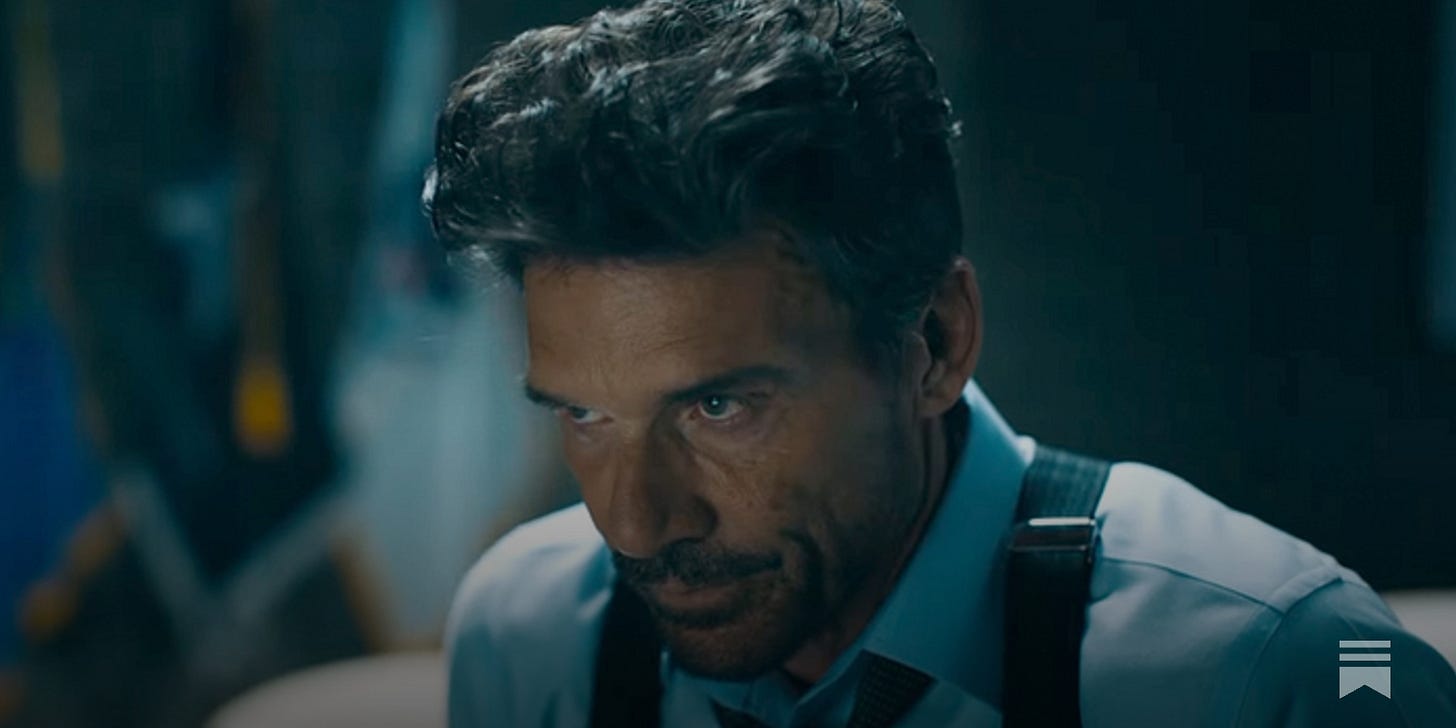

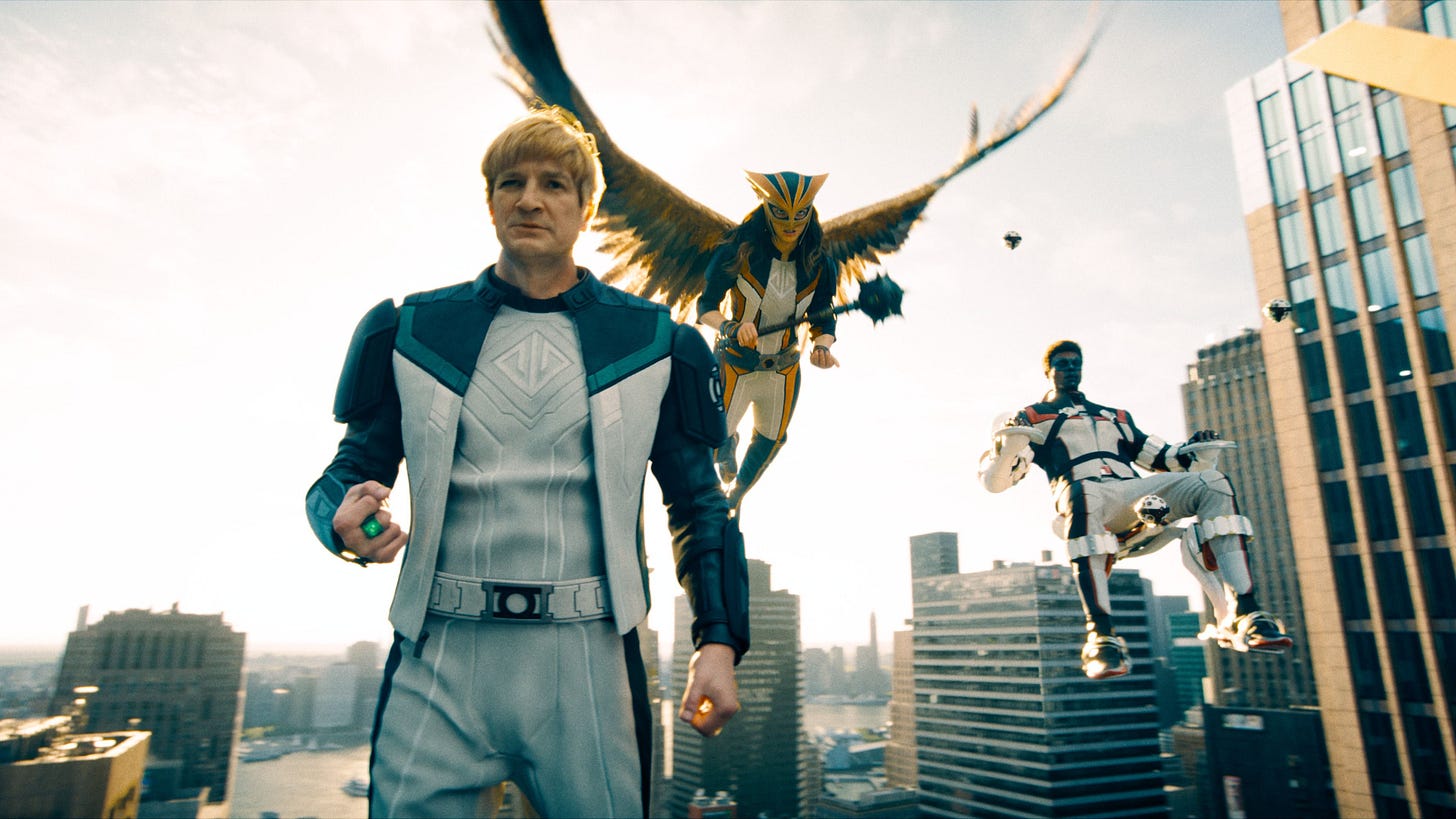
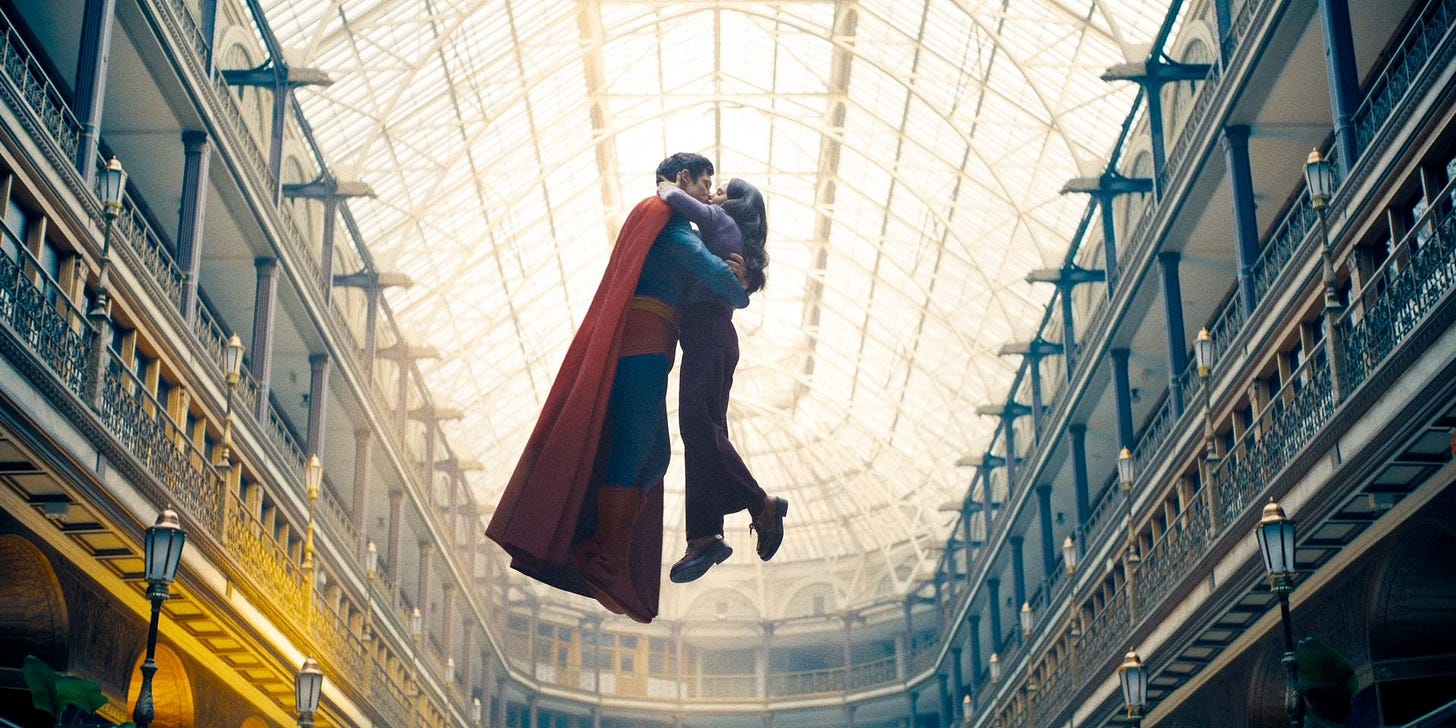

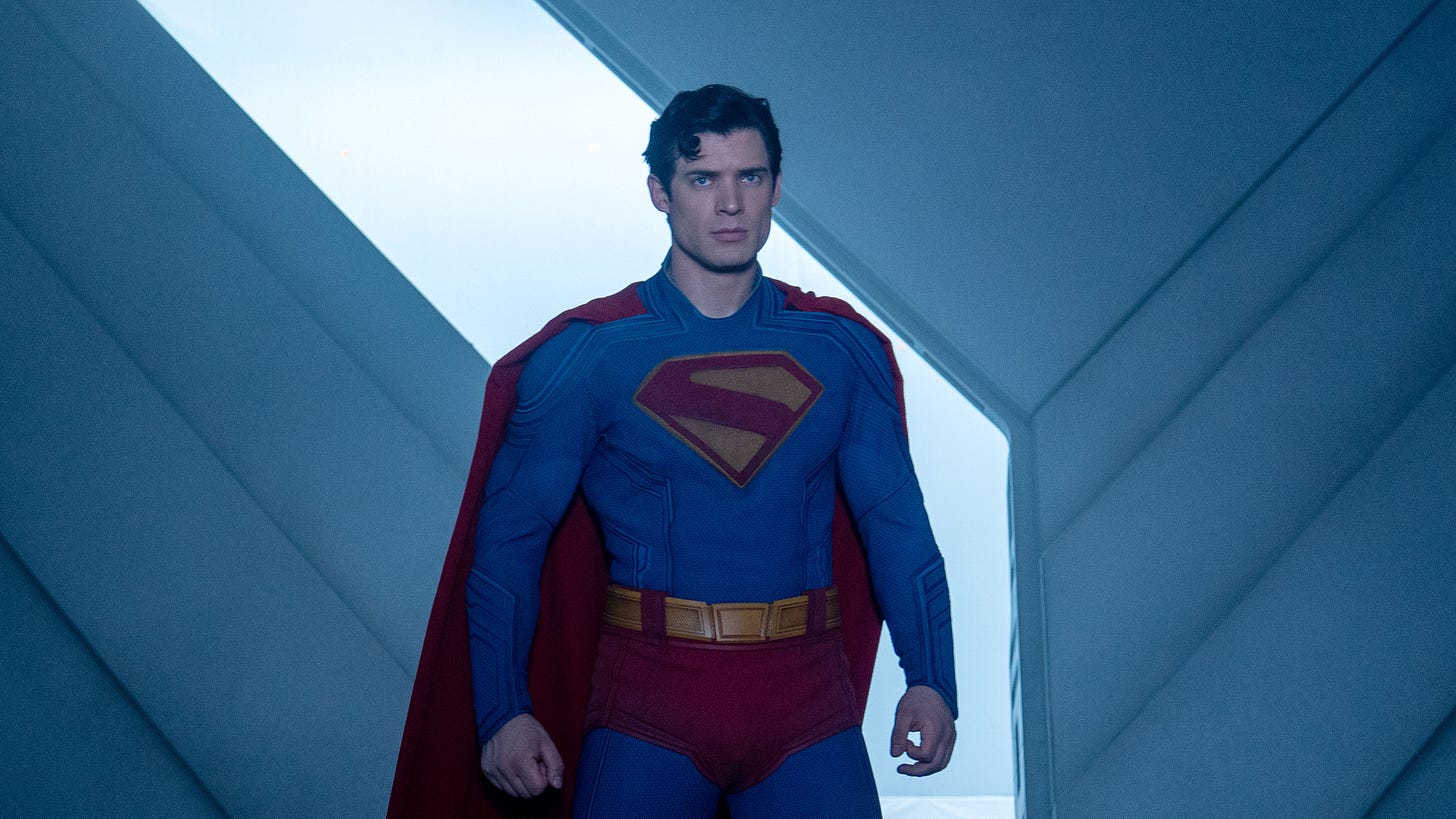
Brosnahan is an excellent actress. Watch Mrs. Maisel.
I respectfully disagree on Lex. It’s very accurate to the source material in that he’s defined by being a gaping emotional wound of mindlessly petty spite and envy. His whole thing is that he has everything most people would ever want, and wastes it all on pointless vendettas because he can’t handle not being the most important thing in the room for five seconds.